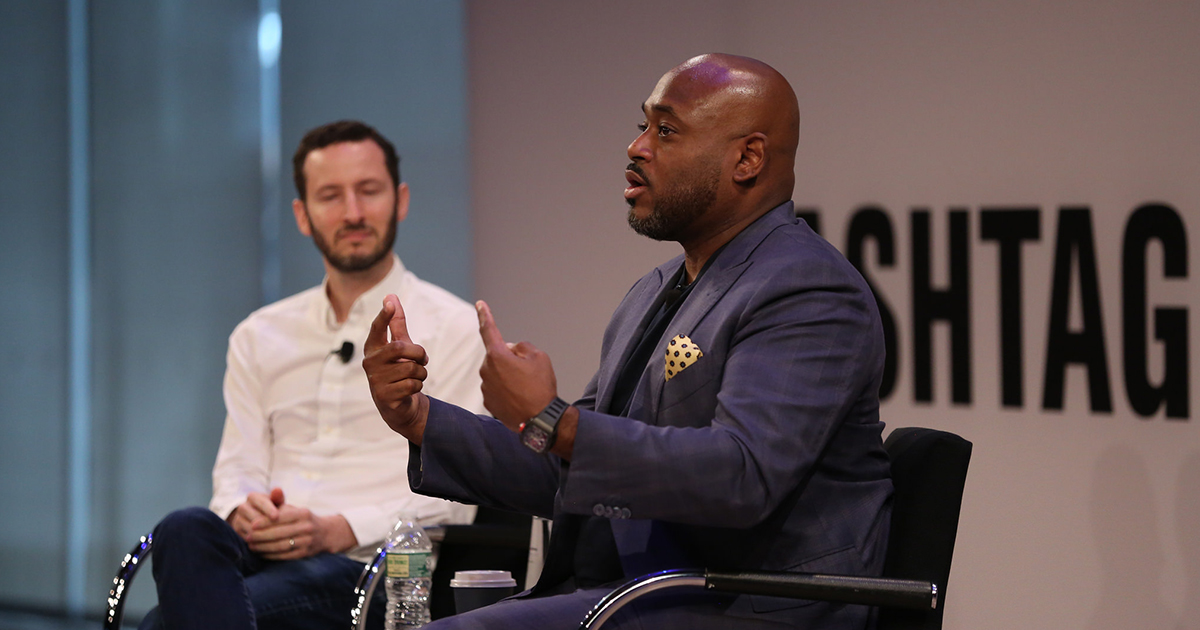Steve Stoute Wants You to Stop Using the Word Multicultural to Describe Diversity
Embracing Diversity, Not 'Multicultural' is Key for Advertisers

By
![]() Team Hashtag
•
3 min read
Team Hashtag
•
3 min read
August 27, 2018
Music mogul turned advertising executive Steve Stoute keeps some pretty cool company.When he isn’t jet-setting with Diddy or making movies with LeBron, he’s a man on a mission to help brands translate popular culture into profitable conversation.
Speaking at Hashtag Sports 2018, Steve Stoute discusses why and how sports marketers should embrace ethnic insights and diversity in order to best connect with their end consumer. This interview, originally conducted at HS18 by Jason Feifer of Entrepreneur, has been condensed and edited.

So you [feel] that the world ‘multicultural’ is an old word…
I used to sit in rooms, it’s unfortunate, you hear “the multicultural point of view” and “multicultural this and that.” It’s like, what are you talking about?
There are all these definitions like urban…like that meant black. That doesn’t mean black. Urban is a measurement of space; density of people in a space. “Multicultural” is like code for being black. No, it’s not. Multicultural [is] multiple cultures coming together.
I believe wholeheartedly–and if you bet this for the last 20 years you’d be doing great–if you are a brand, you must lead with ethnic insights.
Ethnic insights are popular culture. Understanding ethnic insights would lead you to popular culture.
If you are not betting on ethnic insights and you are betting on what you believe is mass-market culture (if there is such a thing), you are going really fast in the wrong direction. Understanding multicultural insights or ethnic insights is exactly [what] should be your North Star. Finding that ethnic insight should be where you grow your business.
Can we dive deeper into that? If you’re working for a brand and you’re like “You’re right, you’re absolutely right. I should be looking for ethnic insights.” What’s step one?
Have the people that work at your company look like the audience you’re trying to sell the product to. What I see a lot is these companies saying, “Okay yeah, let’s do it” and then you look around the room, and it’s the same people with the same old program. You have to make a seismic shift.
Change is hard; change is good. Change in today’s society is happening faster than ever. I read this quote that said “The world is moving faster than it’s ever been and will never be this slow again.” And that’s just the facts.
So you have to change, and in order to make those changes, you have to have diversified thinking at the table. You need to hire more women, you need to hire African-Americans, you need to hire Latinos. You need to hire people that look like the audience you want to serve, and you must listen which requires empathy and is extremely important in all of this.
You can’t pull this off without empathy. You can’t put a bunch of people in the room and basically treat them as actors because you’re just going to do what you want to do anyway. Empathy allows you to listen, and understand their perspective, and it’s those combined perspectives that are going to help you as an industry and as a business change.
Do you think part of that was because the advertising at the time was thinking about people in boxes? They were thinking about reaching the white people, reaching the black people…
Yeah, in fact, that’s what media’s built on. The media business has been built on that topic and that topic only. Segmentation and hyper-segmentation. Black 18-34, white 18-34, this religion, this race… None of these things have anything to do with anything.
In fact, I think media has done a very good job for themselves in making money but a very poor job in bringing people together through these segmentation studies. Like, who informed them?
Look [around you] today. Certain things like sports have nothing to do with segmentation, but the media has built their business on segmentation.
When I first started Translation, I used to ask people all the time when we’d go into these rooms, “Where’s the black section of Facebook?” There is none because there shouldn’t be one on television either, and there shouldn’t be one in magazines either, and there shouldn’t be one in radio. All of these things are ridiculously poor in reflecting who we are and our values as people.
